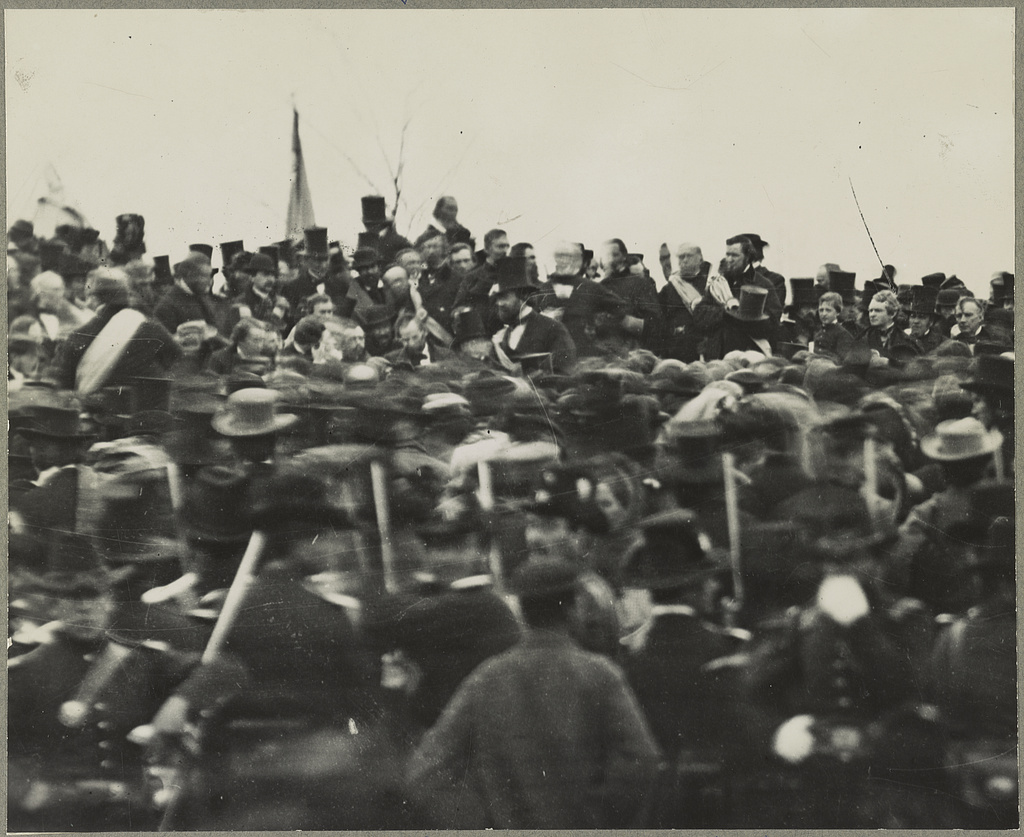The Gettysburg Address is the speech delivered by Abraham Lincoln at the November 19, 1863, dedication of Soldier’s National Cemetery, for Union soldiers killed at the Battle of Gettysburg.
Invited to give a “few appropriate remarks,” Lincoln was not the featured speaker at the dedication; Edward Everett, a famous orator and former politician and educator, was. Everett spoke for two hours, from memory, before Lincoln took the podium. In about 260 words, beginning with the famous phrase, “Four score and seven years ago,” Lincoln honored the Union dead and reminded the listeners of the purpose of the soldier’s sacrifice: equality, freedom, and national unity. The following day, Everett wrote to Lincoln: “I should be glad, if I could flatter myself that I came as near to the central idea of the occasion, in two hours, as you did in two minutes.”
Lincoln’s speech did not garner much attention during his lifetime; in many ways, it was forgotten and lost to popular memory until the U.S. centennial in 1876, when its significance was reconsidered in light of the war’s outcome and in the larger context of the young country’s history. The Gettysburg Address is now recognized as one of Lincoln’s greatest speeches and as one of the most famous speeches in U.S. history. Here it is:
Four score and seven years ago our fathers brought forth on this continent, a new nation, conceived in Liberty, and dedicated to the proposition that all men are created equal.
Now we are engaged in a great civil war, testing whether that nation, or any nation so conceived and dedicated, can long endure. We are met on a great battle-field of that war. We have come to dedicate a portion of that field, as a final resting place for those who here gave their lives that that nation might live. It is altogether fitting and proper that we should do this.
But, in a larger sense, we can not dedicate — we can not consecrate — we can not hallow — this ground. The brave men, living and dead, who struggled here, have consecrated it, far above our poor power to add or detract. The world will little note, nor long remember what we say here, but it can never forget what they did here. It is for us the living, rather, to be dedicated here to the unfinished work which they who fought here have thus far so nobly advanced. It is rather for us to be here dedicated to the great task remaining before us — that from these honored dead we take increased devotion to that cause for which they gave the last full measure of devotion — that we here highly resolve that these dead shall not have died in vain — that this nation, under God, shall have a new birth of freedom — and that government of the people, by the people, for the people, shall not perish from the earth.

